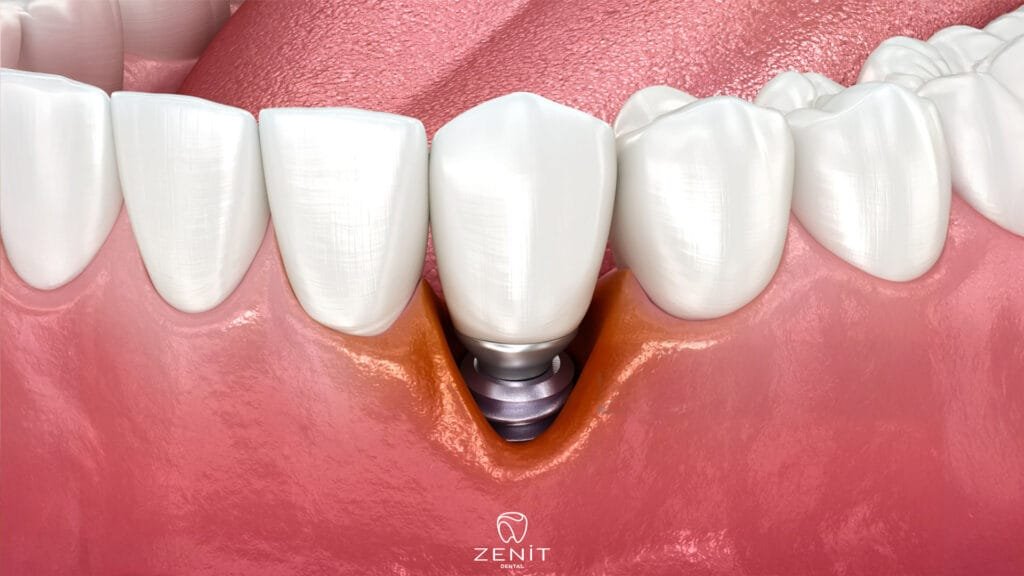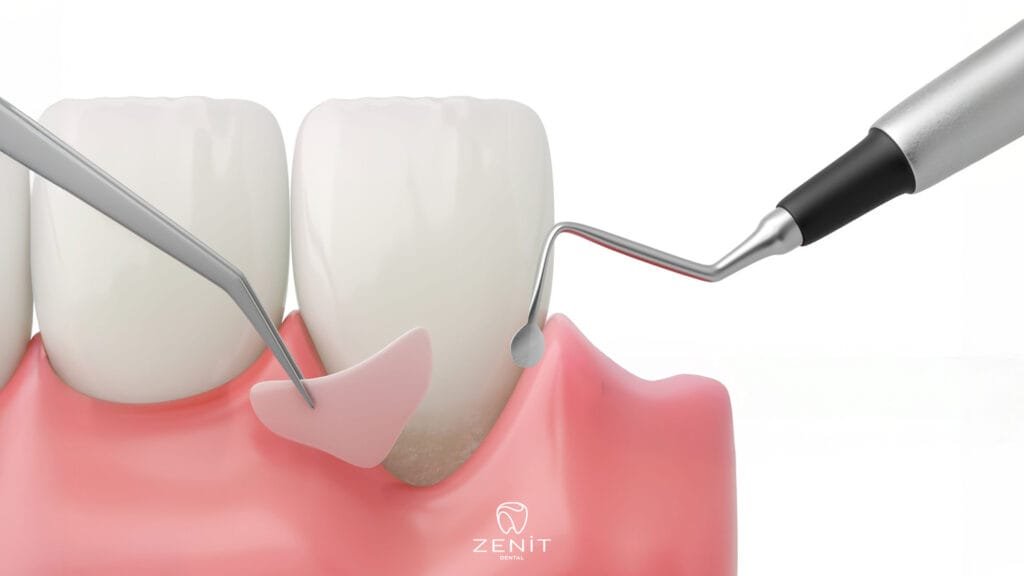What is Bruxism
Bruxism is a commonly heard term in our daily lives, yet many of us may not be familiar with it in detail. Defined as the involuntary grinding or clenching of teeth, this condition can lead to both physical and psychological discomfort. In this article, we’ll provide an in-depth look at bruxism, exploring what this common but often overlooked condition is, its symptoms, possible causes, and effective treatment options.
The stress and anxiety of daily life can contribute to issues like bruxism. However, as awareness of this condition grows and effective treatment options become more widespread, managing and treating this discomfort becomes possible. Understanding bruxism not only helps us safeguard our own health but also enables us to support those around us. Let’s delve into this troublesome condition together and find effective solutions.
Definition and Descriptive Features of Bruxism
Bruxism is a term that describes the involuntary grinding or clenching of teeth, often occurring during sleep. A person may not be aware of this behavior and may typically encounter associated symptoms upon waking, such as pain or jaw stiffness. This condition can negatively impact a person’s sleep and overall quality of life.
When looking at descriptive features, some signs of bruxism may include:
- Teeth Grinding or Clenching: The individual involuntarily grinds or clenches their teeth, typically during sleep and may go unnoticed while awake.
- Jaw Pain and Stiffness: Upon waking, the person may experience pain or stiffness in the jaw area, which can be associated with bruxism.
- Tooth Wear and Damage: Persistent teeth grinding or clenching can lead to tooth wear and even damage. Dentists may evaluate this tooth wear as an indicator of bruxism symptoms.
- Headaches: Bruxism can also cause headaches, with waking up with a headache being a common symptom.
Temporomandibular Joint (TMJ) Issues: Constant teeth grinding and clenching can lead to or exacerbate temporomandibular joint (TMJ) issues. - Sleep Disorders: Bruxism can affect a person’s sleep and lead to sleep disorders, further impacting their overall quality of life.
Bruxism is often associated with psychological or physiological factors such as stress, anxiety, or sleep disorders. Treatment typically involves managing these underlying factors and may also include the use of mouthguards by dentists to protect the teeth.

Symptoms of Bruxism
Symptoms of bruxism typically manifest in various ways and can be recognizable. Here are some key elements to pay attention to in order to recognize the symptoms of bruxism:
- Tooth Wear and Tear: Observable significant wear or tear on the person’s teeth. This wear can be especially noticeable as irregularities or sharp edges on the surface of the teeth.
- Jaw Joint Pain and Tension: Bruxism is often associated with pain and tension in the jaw joint (TMJ) area. The individual may experience pain or discomfort during chewing or jaw movements.
- Headaches: Bruxism can often present itself as waking up frequently with headaches, which are usually felt in the temples or the back of the head.
- Jaw Locking or Limited Movement: In some cases of bruxism, symptoms such as jaw locking or limited jaw movements may occur. This condition may indicate problems with the jaw joint area.
- Sleep Disorders and Insomnia: Bruxism can affect a person’s sleep and lead to sleep disorders. The individual may experience issues such as insomnia, restless sleep, or frequent waking.
- Pain or Tension in Jaw Muscles: Bruxism can be associated with pain or tension in the chewing muscles. There may be sensitivity or pain felt in these muscles.
- Sores on the Tongue or Inner Cheeks: In some cases of bruxism, the individual may have sores or lesions on the tongue or inner cheek tissues. This can result from the involuntary clenching or grinding of teeth.
Causes of Bruxism
The underlying causes of bruxism can be complex and may be related to various factors. Here are some possible causes of bruxism:
- Stress and Anxiety: Stress and anxiety are among the most common triggers of bruxism. Factors such as daily life stress, work, or relationship problems can lead a person to clench or grind their teeth during sleep.
- Dental Alignment Issues: Misaligned teeth or a poor bite pattern (malocclusion) can trigger bruxism. Improper alignment of the teeth can disrupt the balance of the jaw joint and surrounding muscles, leading to the onset of bruxism.
- Sleep Disorders: Some sleep disorders, particularly sleep apnea, can trigger bruxism. Individuals experiencing breathing problems during sleep may use their jaw and surrounding muscles to open their airways to regulate their body’s oxygen levels, leading to bruxism.
- Genetic Factors: Some research suggests that bruxism may be associated with genetic predisposition. Individuals with a family history of bruxism may have a higher predisposition to bruxism.
- Psychological Factors: Psychological conditions, especially depression and bipolar disorder, can contribute to the onset of bruxism. These conditions can increase a person’s stress levels and trigger bruxism.
- Caffeine and Alcohol Consumption: Excessive consumption of caffeine or alcohol can trigger or exacerbate bruxism. These substances can increase the body’s stress response and muscle tension.
- Medications: Some medications, especially psychotropic drugs such as antidepressants, antipsychotics, and stimulants, can trigger or exacerbate bruxism.
Effects and Harm of Bruxism
Bruxism is a potentially harmful condition that can cause serious long-term dental damage. Here are some possible effects of bruxism and measures that can be taken to prevent these effects:
- Tooth Wear and Tear: Constant teeth grinding or clenching can lead to wear and tear on the teeth. This can result in irregular wear of the teeth and even cracks or fractures on the tooth surface. Prevention: Using a specially designed night guard recommended by your dentist can protect your teeth from the effects of bruxism. This device protects your teeth during grinding or clenching and reduces the risk of wear.
- Tooth Sensitivity and Pain: Bruxism can cause tooth sensitivity and pain. Increased sensitivity of the teeth due to wear can result in pain when consuming hot or cold foods. Prevention: You can reduce tooth sensitivity by using sensitivity-reducing toothpaste or dental gels recommended by your dentist. Additionally, early detection of possible pain or sensitivity through regular dental check-ups and maintenance is important.
- Jaw Joint Problems: Bruxism can lead to or exacerbate temporomandibular joint (TMJ) problems. Symptoms such as jaw joint pain, restricted jaw movements, or jaw locking may occur. Prevention: To prevent or reduce TMJ problems caused by bruxism, you can perform jaw exercises or apply jaw relaxation techniques. Additionally, stress management techniques and relaxation exercises can also be helpful.
- Tooth Loss: Bruxism can lead to tooth loss over the long term. Structural integrity of the teeth can be compromised, especially due to excessive wear and cracking, increasing the risk of tooth loss. Prevention: Stay in regular communication with your dentist to control bruxism and apply recommended treatments as needed. Additionally, regular dental check-ups can help detect and treat possible problems early.
- Sleep Disorders and General Health Effects: Bruxism can negatively affect a person’s sleep quality and overall health. Effects such as insomnia, fatigue, and stress can adversely affect daily life. Prevention: Developing regular sleep habits to manage sleep disorders associated with bruxism, practicing stress management techniques, and seeking professional help when necessary are important. Additionally, regular exercise and adopting a balanced diet can support your overall health and reduce the effects of bruxism.

Bruxism Treatment
Various methods used in the treatment of bruxism can vary depending on the patient’s condition, the severity of symptoms, and the underlying causes. Here are more detailed explanations of the methods commonly used in the treatment of bruxism:
- Use of Splints or Night Guards: One of the most common treatment methods for bruxism is the use of specially designed splints or night guards. These devices are placed over the teeth to prevent grinding or clenching. Your dentist can provide a custom-fitted splint or night guard tailored to your needs.
- Stress Management Techniques: Bruxism is often associated with stress and anxiety. Therefore, using stress management techniques can help reduce bruxism symptoms. Methods such as deep breathing exercises, meditation, yoga, and relaxation techniques can reduce stress levels and alleviate the severity of bruxism.
- Improving Sleep Patterns: Bruxism often occurs during sleep and is associated with sleep disorders. Therefore, improving sleep patterns can reduce bruxism symptoms. Developing regular sleep habits, improving the sleep environment, and reducing stress can enhance sleep quality and alleviate bruxism.
- Orthodontic Treatment for Correcting Dental Alignment: Bruxism may be associated with misaligned teeth or malocclusion. In such cases, orthodontic treatment may be recommended to correct dental alignment. Orthodontic treatment such as braces or dental appliances can align the teeth properly and reduce bruxism symptoms.
- Use of Muscle Relaxant Medications: In some cases, muscle relaxant medications may be prescribed to control bruxism. These medications can reduce tension in the jaw and surrounding muscles, alleviating bruxism symptoms. However, the side effects and long-term effects of these medications should be considered.
- Physical Therapy: There are physical therapy techniques that can help reduce bruxism symptoms. Especially in cases of jaw joint pain and tension, physical therapy exercises and massage techniques can help relax the jaw muscles.
Bruxism treatment typically involves a combination of one or more methods, and the treatment plan is determined based on the individual’s specific needs and symptoms. Therefore, it is important to consult a dentist or sleep specialist when experiencing symptoms of bruxism.
To Summarize
Bruuxism treatment methods include the use of splints or night guards, stress management techniques, improving sleep patterns, orthodontic treatment, muscle relaxant medications, and physical therapy. The appropriate combination of these methods should be determined based on individual needs to alleviate bruxism symptoms and prevent potential harm. If experiencing symptoms of bruxism, it’s important to consult a dentist or sleep specialist to evaluate suitable treatment options. Take action to make your life more comfortable and seek expert assistance!
What is Bruxism What is Bruxism What is Bruxism What is Bruxism What is Bruxism What is Bruxism What is Bruxism What is Bruxism What is Bruxism What is Bruxism What is Bruxism What is Bruxism






